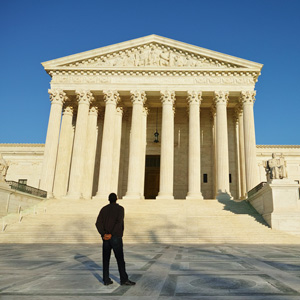Supreme Court upholds insider trading conviction for secondhand tippee

The U.S. Supreme Court on Tuesday ruled that a secondhand tippee who traded on confidential inside corporate information first passed between brothers can be convicted of insider trading even though the original tipper received no money or property for the tips.
The Supreme Court upheld the conviction of Bassam Salman in a unanimous opinion (PDF) by Justice Samuel A. Alito Jr. Salman was accused of making $1.5 million by trading on tips from an investment banker now married to Salman’s sister. The investment banker (Salman’s brother-in-law) had given the information to the investment banker’s brother, who traded on the information and also passed it along to Salman.
A 1983 Supreme Court decision, Dirks v. SEC, had held that a tippee can be liable for insider trading when the tipper discloses the inside information for a personal benefit. The benefit can be something of value or a gift of confidential information to a trading relative or friend.
A 2014 federal appeals court decision interpreting Dirks, United States v. Newman, had reversed the convictions of two portfolio managers who were several steps removed from the corporate insiders, and were apparently unaware of the source of the tips. Salman’s appeal was pending before the San Francisco-based 9th U.S. Circuit Court of Appeals when the New York-based 2nd U.S. Circuit Court of Appeals ruled in Newman.
Salman argued his conviction should be reversed based on the reasoning of Newman, since there was no evidence his brother-in-law received anything of a pecuniary nature, and there was no evidence that Salman knew of a benefit to his brother-in-law.
The Supreme Court disagreed. “Our discussion of gift giving resolves this case,” Alito wrote. “Dirks makes clear that a tipper breaches a fiduciary duty by making a gift of confidential information to ‘a trading relative,’ and that rule is sufficient to resolve the case at hand.”
The Supreme Court also rejected Salman’s argument that the Dirks gift-giving standard is unconstitutionally vague. The case “created a simple and clear ‘guiding principle’ for determining tippee liability,” Alito wrote.
To the extent the 2nd Circuit held the tipper in a remote tippee situation must receive something of pecuniary or similar value, that requirement is inconsistent with Dirks, Alito’s opinion said.
The case is Salman v. United States.
Related articles:
ABAJournal.com: “SCOTUS considers reach of insider trading law; what if tipster derives no financial benefit?”
ABAJournal.com: “SCOTUS accepts insider trading case involving passed tips; does tipper have to get tangible benefit?”



